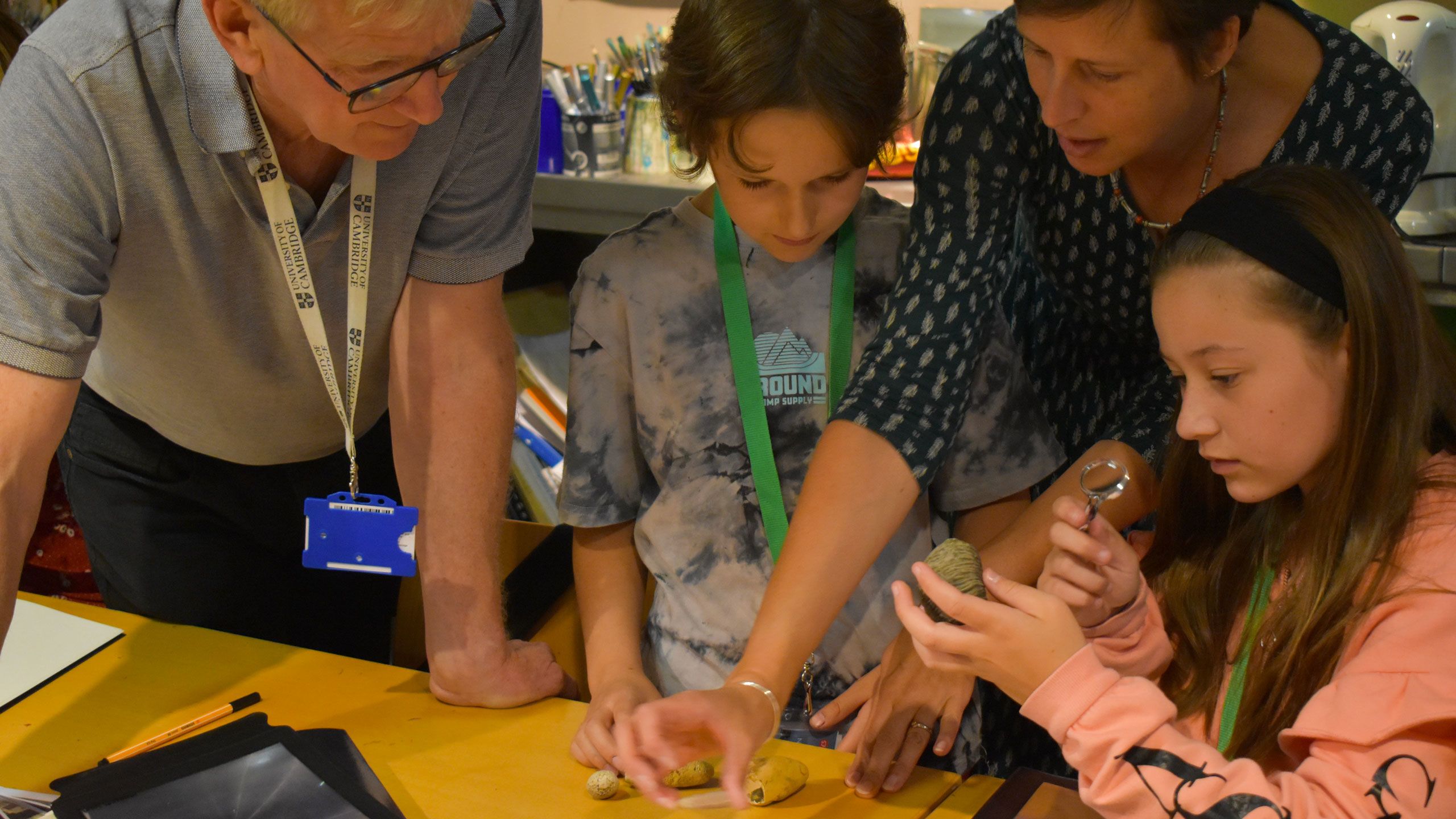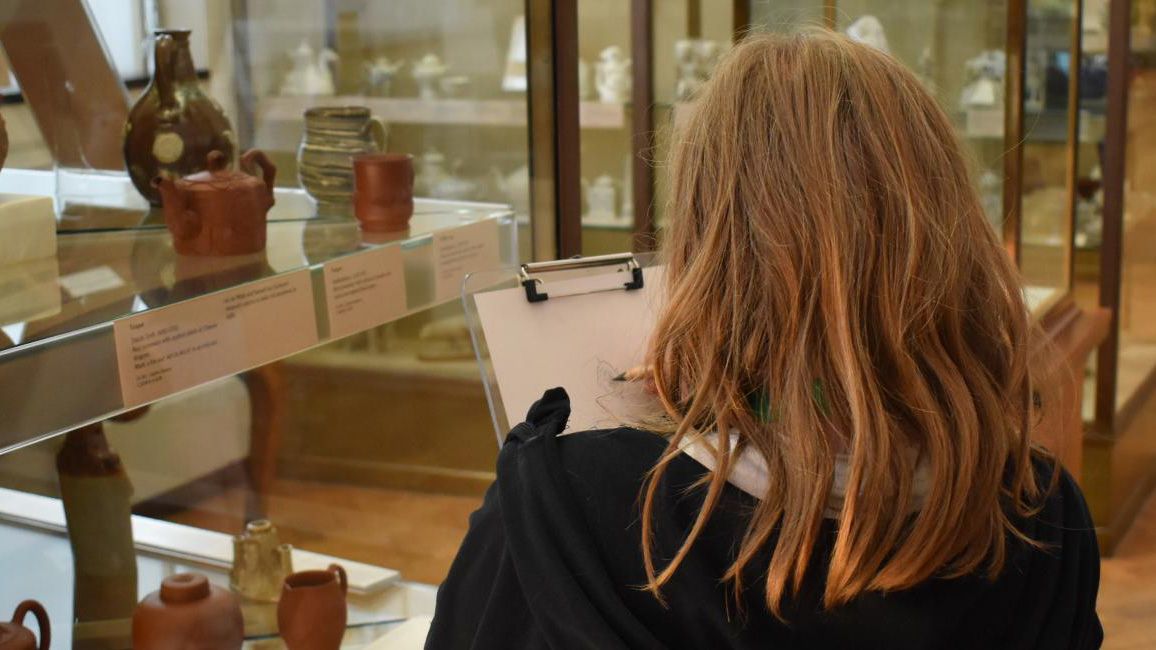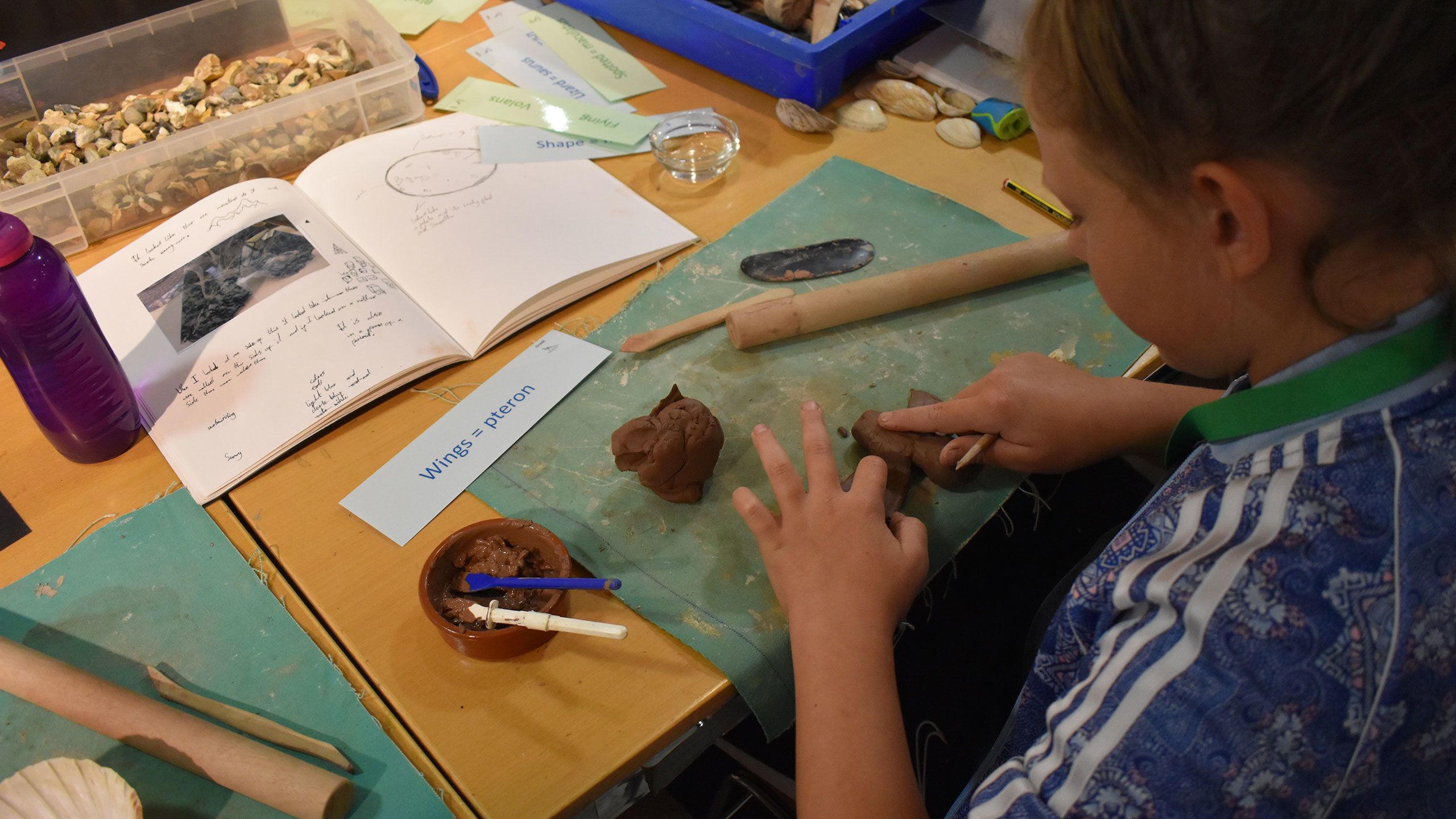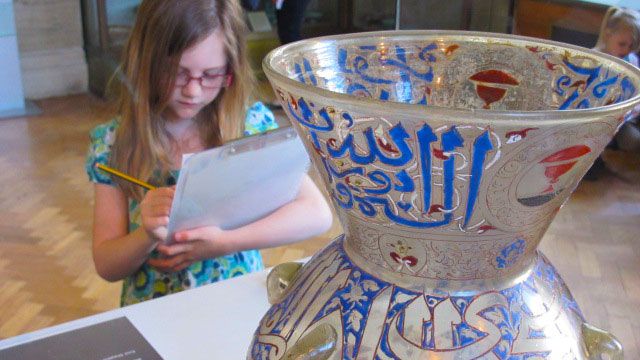

Object lessons

The University of Cambridge is launching a short course for teachers to help them integrate museum objects and collections into their practice through “object-based learning”.
Object-based learning involves the use of material culture – such as artworks, archives, artefacts, or digital versions of these – as learning tools. The three-month professional development course, which starts in April, has been created in response to growing demand from teachers for guidance about how to use it in their practice effectively. Applications are open now through the University’s website.

Opportunities for this method of teaching have expanded dramatically in recent years, especially as more and more museums and galleries have digitised their collections, making them widely available to schools. Various studies have also shown that it can have significant benefits. Object-based learning helps students to grasp parts of the curriculum that might otherwise seem abstract or remote, positively affects student and teacher motivation and wellbeing, and provides teachers with resources and inspiration to innovate in the classroom.
The course will be run by the Faculty of Education, University of Cambridge, and by the University of Cambridge Museums – the consortium of the University’s eight museums and its Botanic Garden. Together, these house some of the most important collections in the UK, comprising more than five million works of art, artefacts and specimens.
What really excites teachers is that it is a great way to nurture young people’s curiosity, creativity, independence and motivation and to help them to make sense of the world around them
Participants will be introduced to the different – and often surprisingly simple and manageable ways – in which objects and images can be used to enrich and inspire learning. The course will also cover issues such as how object-based learning can support conversations about diversity and inclusion, the role of cultural learning in supporting student and teacher wellbeing, and in children’s post-COVID recovery.
Dr Kate Noble, Senior Research Associate in Museum Learning at the Fitzwilliam Museum, Cambridge, who will be leading the course, said: “Previous workshops and sessions have shown us that there is a real appetite to work with museum collections, but teachers don’t always feel that they know how to make best use of them.”
“Object-based learning opens up fresh perspectives and innovative approaches to teaching the curriculum. What really excites teachers, though, is that it is also a great way to nurture young people’s curiosity, creativity, independence and motivation and to help them to make sense of the world around them.”
The course builds on other training sessions for teachers led by Noble and her fellow researcher-educators in the University’s museums, which have demonstrated the value of object-based learning for teachers and pupils alike.
One example is a programme called Inspire Nature, which took place in the middle of national lockdowns in 2020 and 2021. More than 100 teachers participated in the programme, exploring how collections can be used to stimulate young people’s understanding of the natural landscape. The course used resources such as plants in Cambridge’s Botanic Garden, bird collections in the Museum of Zoology and paintings in the Fitzwilliam Museum.
Follow-up research by Noble and her colleague, Sarah-Jane Harknett, found that afterwards, teachers not only felt more confident about working with museum collections, but more empowered to be creative in their teaching. “All of a sudden, it was like, this makes sense – this is what we should be doing,” one teaching assistant told them. 70% of the participants also reported benefits to their wellbeing during the difficult lockdown period.

The value of object-based learning for students is often its capacity to bring the curriculum to life. For example, while secondary-age pupils learn about evolution as a concept in science lessons, spaces such as Cambridge’s Museum of Zoology can provide visiting groups with a physical display showing the evolution of different organisms over time. Similarly, the Fitzwilliam Museum has used a combination of Elizabethan artefacts, its armour collections and paintings to help English Literature students develop a visual understanding of some of the content and ideas in Shakespeare’s plays, deepening their contextual grasp of the texts themselves.
Using objects as the basis of classroom discussion can also stimulate open-ended enquiry and high-quality dialogue among teachers and pupils, which studies have linked to improved attainment. Following its work with the University Museums team, for example, one primary school in the Cambridge area runs regular assemblies using digital images of objects, which pupils are invited to discuss using three basic Thinking Routine prompts: “I see”, “I think” and “I wonder”.

Alongside various such pedagogical techniques, the new course will cover the role of object-based learning in developing students’ critical thinking and creativity; best practice for object-based learning in classrooms, and ways to build museum visits into core curriculum planning. Participating teachers will also design, develop and lead a museum learning project for their own setting.
“Object-based learning, by definition, puts students in a space where they are dealing with the tangible and visual,” Noble said. “It can make a huge difference to those who find more traditional approaches to learning difficult, but it also starts very different kinds of conversation to those that you would normally have in a classroom.”
“We know that its capacity to give students agency and to empower them to ask questions is really beneficial. Teachers know it; research tells us it’s true, but there are fewer and fewer opportunities for this within the curriculum – so we need to find ways to create them. Hopefully this new course will give more teachers the tools and inspiration they need to make a start.”
Further information about the Professional Practitioner Development ‘Transforming Practice’ course in Museum Learning is available from the Faculty of Education website.
Images in this story: University of Cambridge Museums